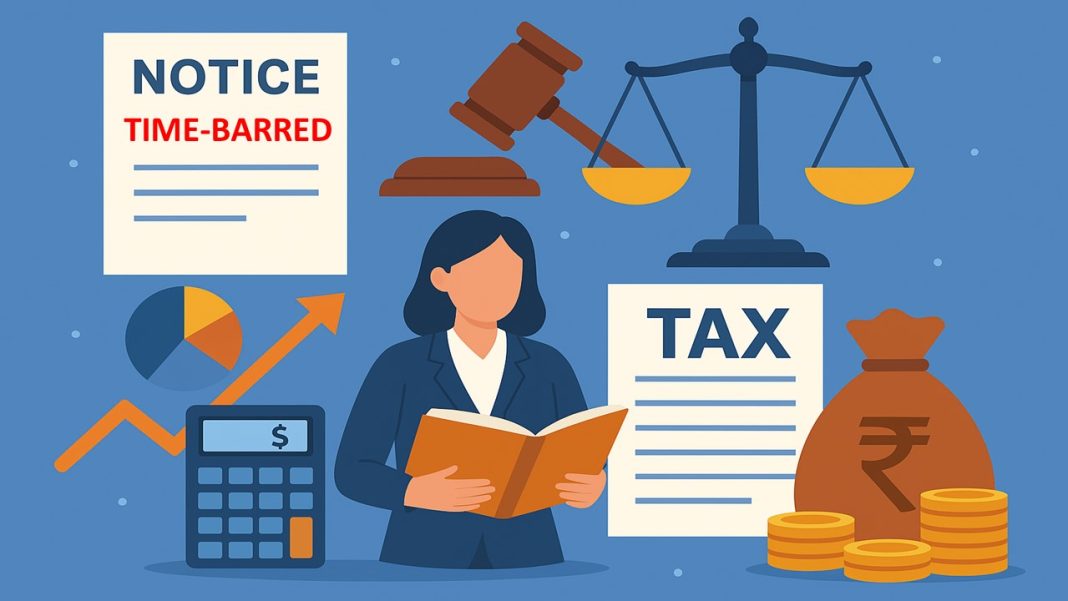ITAT Quashes Time-Barred Notice and Upholds CIT(A)’s Approach of Taxing Only Profit on Purchases
In the present case, the revenue had filed two appeals challenging separate but the same orders dated 18 June 2024, passed by the National Faceless Appeal Centre (NFAC), Delhi.
Due to information received from the Investigation Wing, a search was conducted at the premises of the proprietor of M/s Gayatri Maa Enterprises, where he admitted he was engaged in offering accommodation entries of sales and purchases for a commission and did not actually engage in any activity. Based on this, the Income Tax Department reopened assessments for AYs 2014-15 and 2015-16 against the assessee.
In its order for the AY 2014-15, the AO had made an addition of Rs 3,86,78,504, treating the assessee’s purchases from M/s Gayatri Maa Enterprises as an unexplained expenditure. Similarly, in its order for the AY 2015-16, the AO had made an addition of 1,98,98,080 related to the purchases from M/s Riddhi Siddhi Impex. However, the learned CIT(A) reduced the addition to just 2% of the said purchases. Therefore, the Revenue filed an appeal before the ITAT Mumbai.
The assessee submitted that the notices were issued on 31 July 2022 for both years. He argued that for A.Y. 2015-16, the notice is time-barred, as the six-year period expired on March 31, 2022, and the new window of ten years cannot be applied retrospectively. The assessee cited the decision of the Hon’ble Supreme Court in Union of India v. Rajeev Bansal [(2024) 469 ITR 46 (SC)], which also held the same. The tribunal agreed that the notice issued for the AY 2015-16 was time-barred.
For the AY 2014-15, the issue before the ITAT was whether the profit element embedded in such a purchase should be taxed or the entire transaction value.
The tribunal observed that the assessee had submitted the proofs, including bank payments, audited books, invoices, etc., and the AO had accepted the sale but questioned the purchases. The ITAT said that if the purchases are recorded in the books of account, payments are made through verifiable banking channels, and the sales have been accepted as genuine, section 69C cannot be invoked on the ground of “unexplained expenditure”. This provision can only be applied when an expenditure is found to have been incurred and the assessee gives no explanation about its source. However, in the present case, the assessee has submitted a satisfactory explanation, so this allegation is not reasonable.
The Tribunal further held that since the sales corresponding to the purchases were accepted, the whole purchase cannot be disallowed. Instead, only the embedded profit component can be taxed. Therefore, the ITAT upheld the decision of CIT(A) for applying a 2% rate on the disputed purchase, calling it fair and reasonable.
Accordingly, the ITAT dismissed the appeals filed by the revenue and quashed the reassessment proceedings for A.Y. 2015-16 and the order of CIT(A) for A.Y. 2014-15.
Case Citation: ACIT 27(1) Vs Bhavesh Ranchhodas Madiyar; ITA No.4028/Mum/2024; 31/10/2025; 2015-16 and 2014-15



